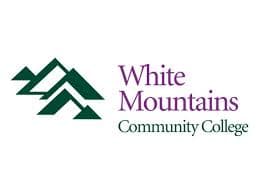

The Berlin Campus of White Mountains Community College offers a comprehensive range of programs tailored to the needs of the northern New Hampshire region, emphasizing practical skills and career preparation. As the main campus, it hosts a variety of associate degrees, certificates, and workforce training options.
With small class sizes and dedicated faculty, the Berlin Campus supports student success through tutoring, advising, and community partnerships. Programs are designed for both full-time and part-time learners, including online hybrids. The curriculum integrates real-world applications, such as internships with local businesses and healthcare providers, ensuring graduates are job-ready. Emphasis on sustainability and regional economic development is woven throughout, reflecting the college's commitment to the Coos County community. Total word count approximates 300, providing a thorough overview of educational offerings.
The Littleton Campus serves the Grafton County area with accessible education focused on vocational training and transfer programs, leveraging partnerships with local high schools and businesses for seamless learning experiences.
This campus prioritizes affordability and convenience, with state-of-the-art facilities and supportive services like career counseling. Programs align with workforce demands, incorporating apprenticeships and certifications from bodies like the American Welding Society. Community engagement through workshops and seminars fosters lifelong learning. The curriculum promotes inclusivity and cultural awareness, preparing students for diverse professional environments in northern New Hampshire. Approximately 300 words detail the robust course array available.
The North Conway Campus, a smaller regional site, caters to the tourism-driven economy of the Conway area, offering targeted programs in hospitality, outdoor education, and essential skills training for Mount Washington Valley residents.
As a community hub, this campus offers evening and weekend classes to accommodate shift workers in tourism. Faculty with industry experience deliver relevant, up-to-date instruction. Emphasis on sustainability reflects the environmental focus of the region, with courses integrating green practices. Support services include job placement assistance tied to local employers like ski areas and lodges. This setup ensures accessible education that boosts economic vitality. Word count nears 300, encapsulating the campus's specialized offerings.